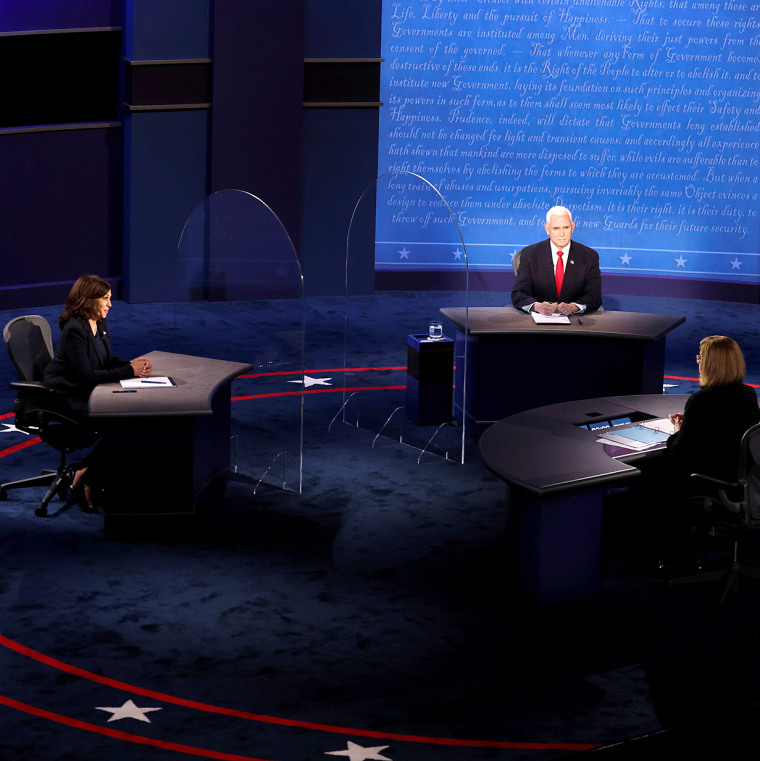In the days leading up to last night's vice-presidential debate, the event was defined by questions about whether -- and how -- it should even take place. Vice President Mike Pence has been exposed to several people, including Donald Trump, who've tested positive for the coronavirus, and CDC guidelines make clear that the Indiana Republican should be in quarantine, not on a debate stage.
What's more, while the discussion unfolded on the safety of the debate, members of Trump's team initially mocked Democratic requests to help protect Sen. Kamala Harris with plexiglass shields. Around the same time, CDC Director Robert Redfield sent a letter endorsing Pence's participation in last night's event, which public-health officials decried as absurd.
It was against this backdrop that the Democratic and Republican nominees met -- at a distance -- on a Utah stage last night, for a debate that was also defined by questions about the pandemic.
Vice President Mike Pence and Sen. Kamala Harris sparred Wednesday night over the federal response to the coronavirus, offering differing views about how the men at the top of their tickets would move the nation forward. President Donald Trump contracted Covid-19 this month, cementing the administration's response to the pandemic as the focus of the campaign, including the task force that Pence was named to lead.
While the candidates didn't have opening statements, the California Democrat was effectively able to deliver one anyway when asked about the White House's response to the public-health crisis. "The American people have witnessed the greatest failure of any presidential administration in our history," Harris said, in a condemnation that was both brutal and accurate.
Pence, the apparent head of the administration's coronavirus task force, had the impossible task of trying to defend a catastrophe. It didn't go especially well.
"When you say what the American people have done over these last eight months hasn't worked, the incumbent told his rival, "that's a great disservice to the sacrifices the American people have made." He added that he's "proud" of the sacrifices the country has made.
In other words, the vice president's strategy was to play a little game: voters were asked to believe that criticizing the White House's failures is tantamount to criticizing Americans. To highlight Trump/Pence ineptitude is to disparage the nation as a whole.
It's an impossible line to take seriously. Indeed, there's ample polling showing broad public dissatisfaction with the White House's coronavirus response -- and it's not because Americans are upset with themselves.
To be sure, Pence was in an untenable position. As COVID-19 claims the lives of more than 210,000 Americans, and the United States struggles through a failed federal response, the vice president who oversaw that response was asked to defend an epic fiasco of historic proportions.
Speaking alongside a plexiglass shield that served as a constant reminder of his policy breakdown, he couldn't.
But taking a step back, the argument at the debate was itself a problem for the Republican ticket. With Election Day quickly approaching, and with millions of voters already casting ballots, the most important and memorable part of the vice presidential debate was about the extent to which he and his team failed to respond to a deadly viral outbreak.
Pence and his allies would love nothing more than to shift public attention in a different direction. In fact, with time running out and Trump struggling in the polls, it's what the GOP needs to see happen.
And that's what struck me as important about last night's debate: any event in which the pandemic is the #1 topic of conversation is an event that helps the Democratic ticket.
